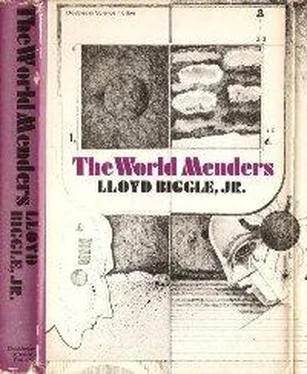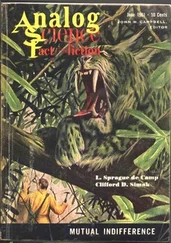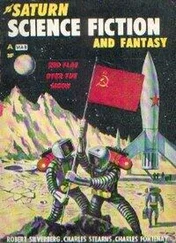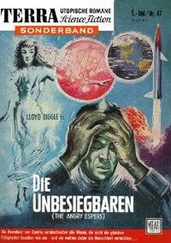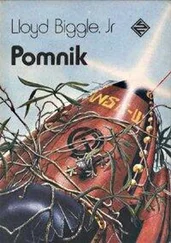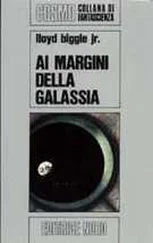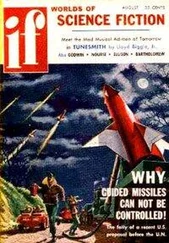Lloyd Biggle Jr. - The World Menders
Здесь есть возможность читать онлайн «Lloyd Biggle Jr. - The World Menders» весь текст электронной книги совершенно бесплатно (целиком полную версию без сокращений). В некоторых случаях можно слушать аудио, скачать через торрент в формате fb2 и присутствует краткое содержание. Год выпуска: 1971, Издательство: Doubleday, Жанр: Фантастика и фэнтези, на английском языке. Описание произведения, (предисловие) а так же отзывы посетителей доступны на портале библиотеки ЛибКат.
- Название:The World Menders
- Автор:
- Издательство:Doubleday
- Жанр:
- Год:1971
- ISBN:нет данных
- Рейтинг книги:5 / 5. Голосов: 1
-
Избранное:Добавить в избранное
- Отзывы:
-
Ваша оценка:
- 100
- 1
- 2
- 3
- 4
- 5
The World Menders: краткое содержание, описание и аннотация
Предлагаем к чтению аннотацию, описание, краткое содержание или предисловие (зависит от того, что написал сам автор книги «The World Menders»). Если вы не нашли необходимую информацию о книге — напишите в комментариях, мы постараемся отыскать её.
The World Menders — читать онлайн бесплатно полную книгу (весь текст) целиком
Ниже представлен текст книги, разбитый по страницам. Система сохранения места последней прочитанной страницы, позволяет с удобством читать онлайн бесплатно книгу «The World Menders», без необходимости каждый раз заново искать на чём Вы остановились. Поставьте закладку, и сможете в любой момент перейти на страницу, на которой закончили чтение.
Интервал:
Закладка:
“They’re still looking for them,” Jorrul said.
“Of course. The reason they let the olz advance all the way to Scory was to draw their rasc leaders into a trap. When they decided that the trap had failed they simply sent a durrl to speak the word that would send the olz home. They know that no one would be foolish enough to march the olz on Scory without five divisions of rebellious rasc troops to back them up, and it’s those troops that they’re still looking for.”
“I see. And now that Hargo knows that rasc history is riddled with insurrections, he has to go through all the records again to see if there’s evidence that he overlooked when he thought there hadn’t been any.”
Hargo nodded unhappily. “Of course we don’t expect to find anything.”
“Delighted that whatever it is you don’t expect to find isn’t being found with my projector,” Jorrul said dryly. “How’s Liano?”
“Still normal,” Farrari said. “And very happy. Hargo, you have another distinguished visitor.”
Coordinator Paul scowled at them from the archway. “Farrari! The intercom has been blasting your name intermittently for the past half hour.”
“Sorry, sir. Hargo has it turned off in here because it blasts all the time and he’s trying to get some work done.”
“Hello, Peter,” the coordinator said to Jorrul. “Come and see me when you have time—if you can find me, I’ve lost my office. If you aren’t too busy, Farrari, the sector supervisor would like to speak with you. That’s the way he put it—’If Farrari isn’t too busy, I’d like to speak with him.’ ”
“How busy would I have to be to be too busy to see a sector supervisor?” Farrari wanted to know.
As they threaded their way through the crowded corridor, the coordinator muttered, “In twenty-eight years in the service, I’ve never seen anything like this.”
Farrari believed him. The regular staff resented the massive invasion by super-specialists, everyone was short-tempered because of the overcrowding, the mortality rate in sacred cows had been frightful, and several arguments had degenerated into physical combat. Earlier that day Farrari had heard a graying first-grade biologist call a balding zero-grade chemist a stupid fool, and the chemist responded by throwing a centrifuge, which fortunately missed. The only remarkable thing about it, on a day when a sector supervisor was using a world coordinator to run errands for him, was the mildness of the language.
The coordinator’s office resembled a cramped military command post, and Sector Supervisor Ware looked as though he would be much more comfortable commanding an army. He pointed a finger at Farrari.
“So you’re the one who’s responsible for this.”
“No, sir,” Farrari said firmly.
Ware’s glare included Coordinator Paul. “You aren’t the one? I told your coordinator—”
“I’m the one,” Farrari said, “and I’m not responsible. I didn’t create the olz.”
Ware turned, said icily, “Will you stop that for a moment?” to an assistant who was coaxing data from the coordinator’s stuttering desk computer, and scowled a staff conference into silence.
“No,” he agreed. “You didn’t create the olz, and it’s beginning to look very much as if the rascz did, by centuries of what amounted to controlled breeding. How did you happen onto this notion that the olz are animals?”
“Are they?” Farrari asked. “Every place I go I find five people arguing about it.”
Ware shrugged. “Might be animals, then.”
“Looking back, I can find all kinds of reasons. Olz never commit suicide; animals don’t commit suicide. The olz had no reaction at all when I arranged to have their dead speak to them; animals likewise wouldn’t comprehend a message from the dead. Certain vital words are missing from what has been alleged to be the ol language—and so on. Looking back I can see that, but I won’t pretend I saw any of it at the time. All I saw was that the olz have no culture.”
Ware said coldly, “If you’ll pardon the expression—so what? I’d like some data. Are you prepared to prove that animals never have what you consider culture and that humans always have it?”
“The Cultural Survey Reference Library on this world consists of the fifth-year textbooks I was able to bring with me.”
“Why didn’t you ask your headquarters to research the question?”
“My ‘headquarters’ are here,” Farrari said. “If you’re referring to the Cultural Survey, you have the authority to ask—I don’t—but if you ask don’t expect an answer. The job of the Cultural Survey is to study human culture, so it doesn’t go about looking for animal cultures, or even for humans who have no culture.”
“I see.”
“The conduct of your headquarters specialists isn’t one that invites cooperation from other governmental departments anyway. Yesterday one of them wanted to know how I could be so certain that the sounds the olz make aren’t a language. I asked him to define ‘language’ and he tried to hit me.”
Ware smiled. “An expert is understandably embarrassed when he finds that a ‘language’ he’s been studying for years isn’t one. These olz seem to have a stable, repetitive existence and their sounds of communication are always made the same way, under the same circumstances, with always the same result, and to further complicate this they have more sounds than any animal has ever been known to use. The specialists naturally maintain that the olz do so have a language, or they would have noticed that the language they were studying isn’t one.”
“Perhaps so,” Farrari said, “but right now a bulletin on syntax in the ol language makes rather droll reading. Either the olz are extremely intelligent animals, or they’re rather stupid humans. It isn’t my province to decide which. I merely raised the question.”
“You certainly did.”
“And just because I raised the question, these super-specialists seem to think I have some kind of obligation to answer it. I have a few questions of my own that need answers more urgently, and they won’t let me work.”
“What sort of questions?”
“For one, I wondered how the olz managed to survive, considering the treatment of them as shown in IPR records for this planet. There are hundreds of teloids showing durrlz beating olz to death and soldiers using olz for target practice, and so on, and if such scenes are as common as the teloids indicate, the olz should have become extinct long ago. Then it occurred to me that in all of my experience with the olz and as an ol, I never saw an ol mistreated. Not once. So the question is whether my experience was untypical or the records lie.”
“It deserves an answer. Have you found one?”
“Not one that I’d certify, but I think the explanation is that a durrl beating an ol to death makes a much more interesting teloid than a cube of an ol methodically cultivating tubers. Your agents don’t care to waste teloid cubes on scenes that can be had by the thousands any time anyone wants to point a camera. So they record the unusual, and in any society there’ll always be a few persons who are sadistic enough to gain pleasure from mistreating—”
“Animals? Or people?”
“Either, sir. And even a kind people may find it necessary to put their animals on a drastically reduced diet during winter.”
“What you’re saying, young man, is that IPR records of any world may present a distorted picture of that world.”
Читать дальшеИнтервал:
Закладка:
Похожие книги на «The World Menders»
Представляем Вашему вниманию похожие книги на «The World Menders» списком для выбора. Мы отобрали схожую по названию и смыслу литературу в надежде предоставить читателям больше вариантов отыскать новые, интересные, ещё непрочитанные произведения.
Обсуждение, отзывы о книге «The World Menders» и просто собственные мнения читателей. Оставьте ваши комментарии, напишите, что Вы думаете о произведении, его смысле или главных героях. Укажите что конкретно понравилось, а что нет, и почему Вы так считаете.
